Why do designers need their own open-source projects
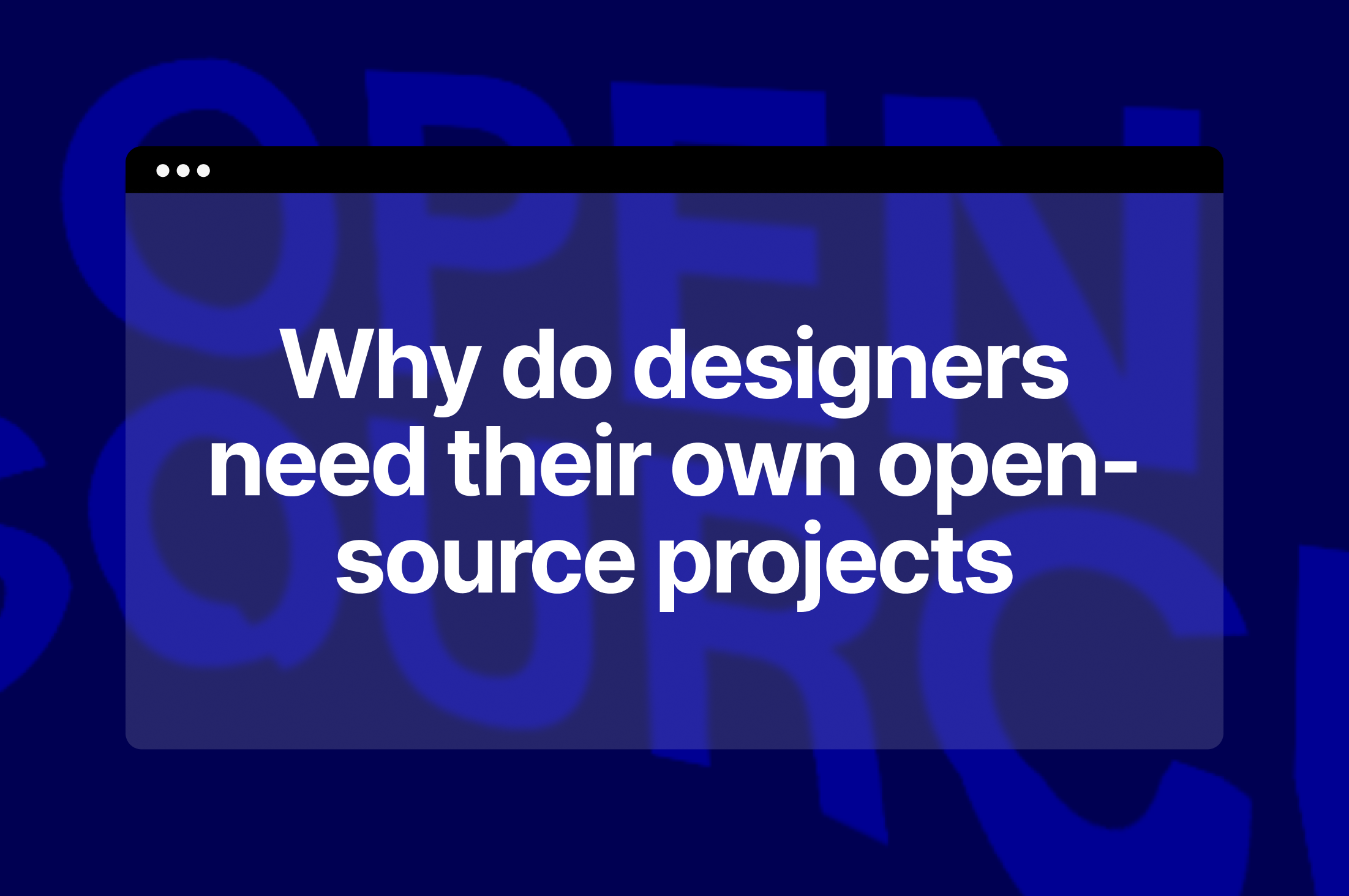
The developer community has always inspired me with its openness and culture of sharing knowledge. Designers, on the other hand, tend to showcase only polished, final work and rarely talk about the process. However, I believe openness is exactly what accelerates our field, when real-world examples and accessible solutions motivate us to learn and push further.
Open source is a mindset: the project’s “source” is public and available to everyone. We usually hear about it in software, where people publish code on GitHub so others can see how it works, suggest improvements, or reuse it in their own projects.
In design, open source can take many forms: a website anyone can adapt, a visual-content generator, a font library, or a shared Figma file. It’s not about “giving everything away for free,” but about a culture of collaboration where your work becomes the foundation for something bigger.
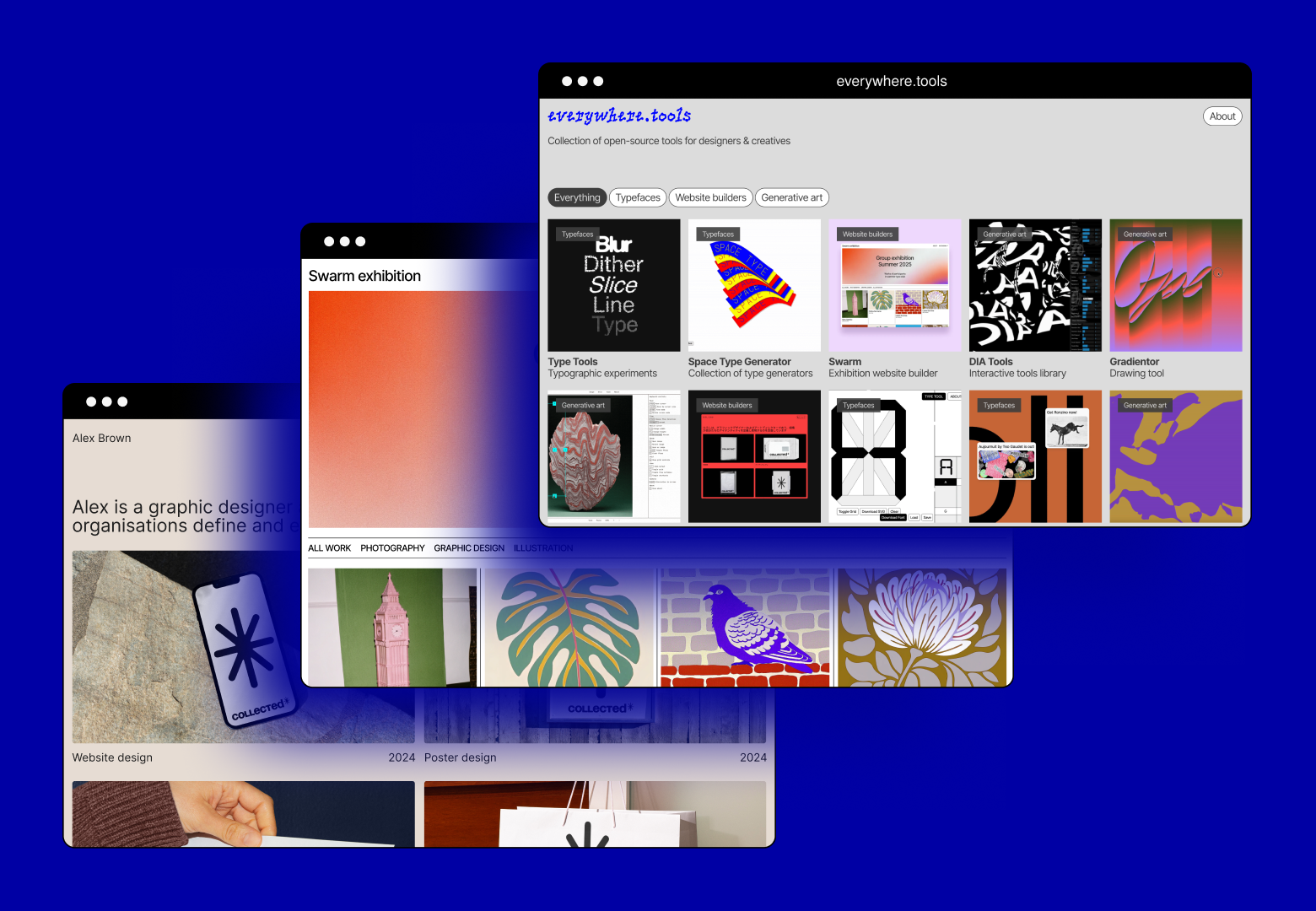
My name is Danil Vladimirov, and I’m a multidisciplinary designer, art director, and creative developer, co-founder of the studio Orientir, and previously worked at Yandex Lavka, Yango Tech, Yango Deli, Cherdak and others. Through my own projects, I want to show why openness in design matters, and how open initiatives benefit not only their authors but the whole community.
Collected
Free open-source tool for building portfolio websites
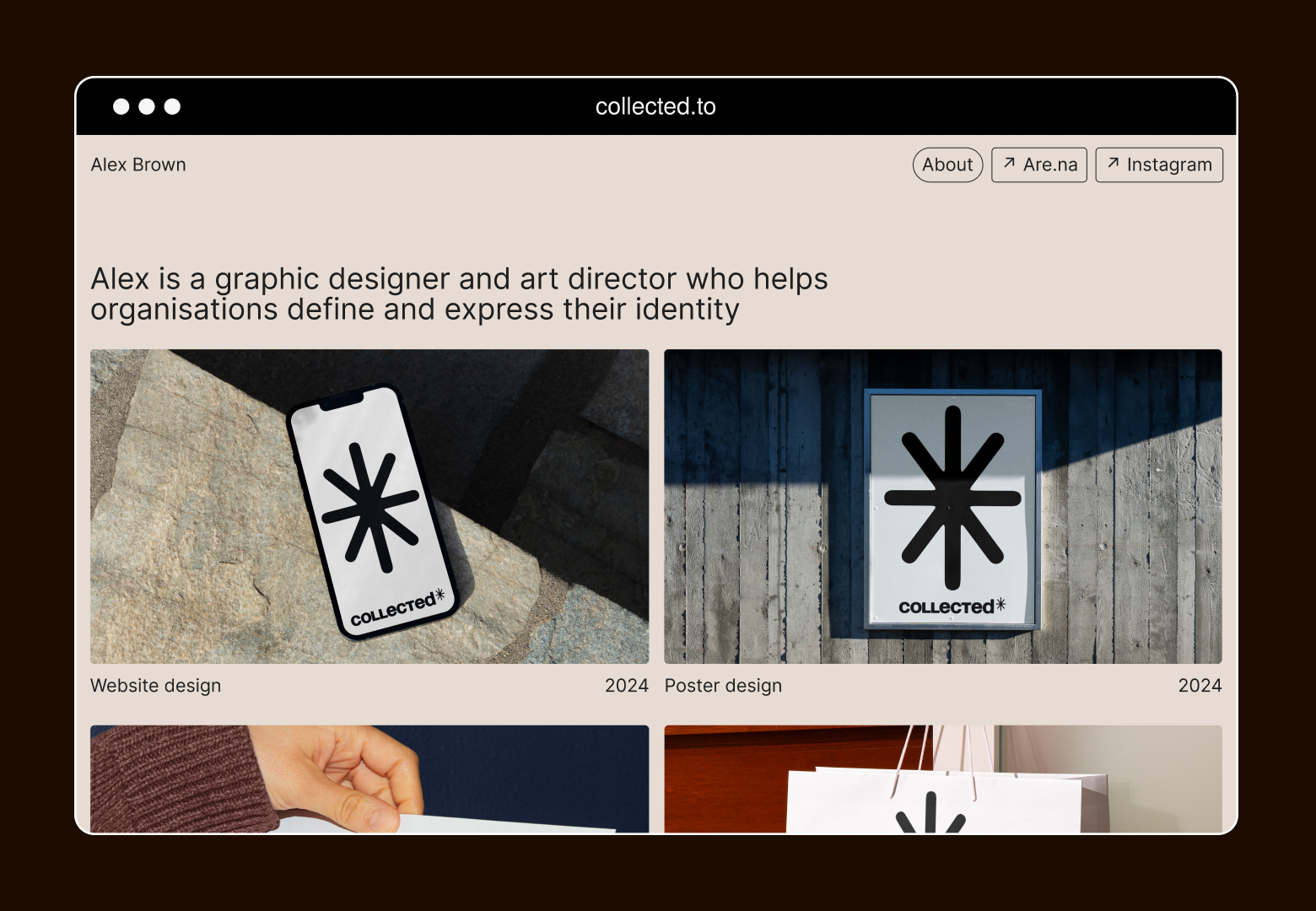
A designer’s first challenges appear at the very start of a career. Inside the profession, processes stay behind the curtain; most public examples are perfectly polished case studies on sleek websites. Many site builders are expensive and out of reach for newcomers.
Collected became my first open-source project, it's a free, customizable portfolio site designed to make launching and showcasing work easy, especially early on.
No technical skills are required: you deploy the site with one click via Vercel and GitHub, and manage content with Sanity CMS. All services offer generous free tiers, which are plenty for a personal site, so the only expense for a professional look is a custom domain.
Swarm
Open-source platform for group exhibition websites
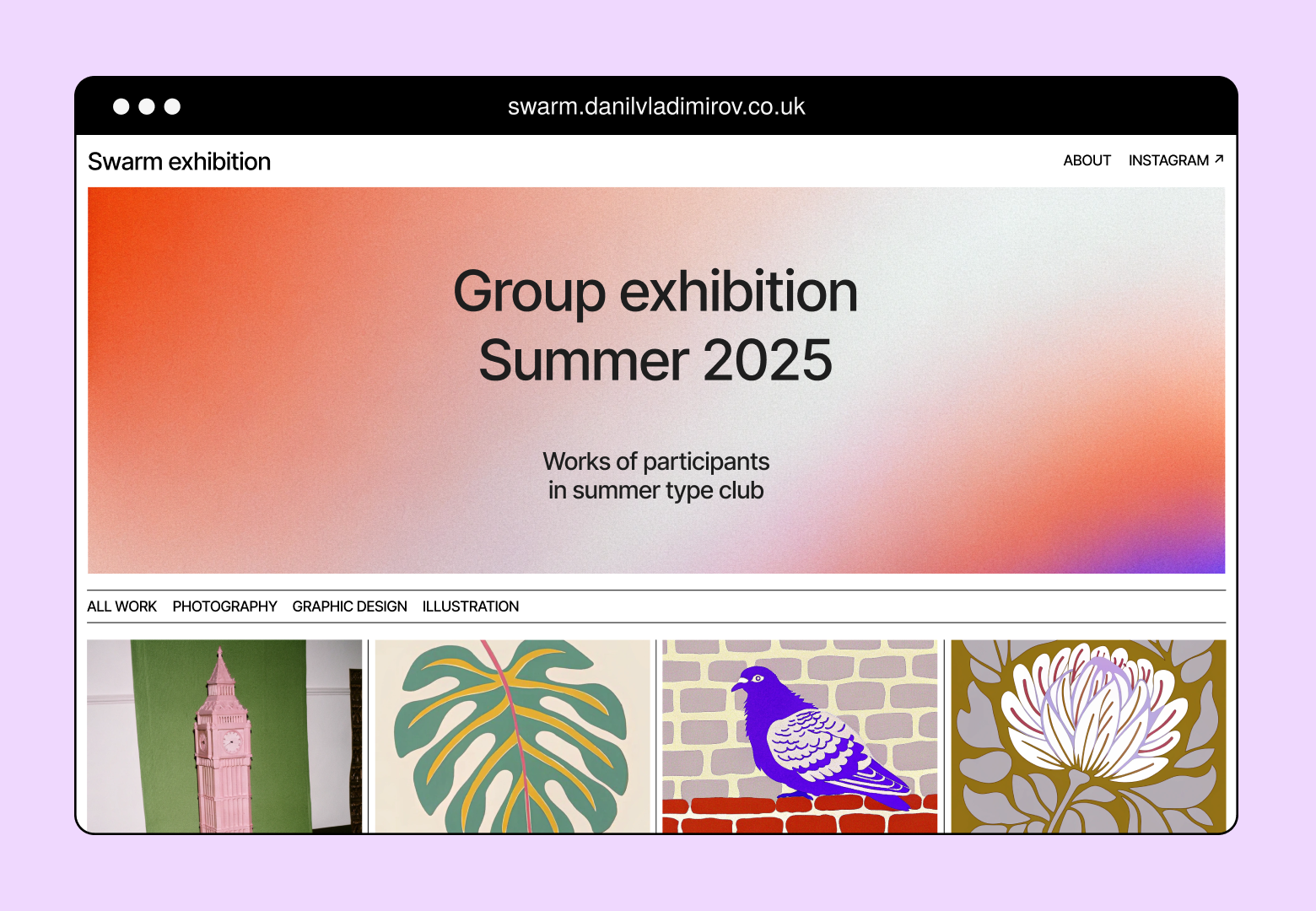
The idea for my next project came while teaching at BHSAD. In 2020, the pandemic pushed final student exhibitions online, and I volunteered to build a site where each Foundation student could independently publish their final project.
Years later, it was clear that similar tools for online exhibitions were still missing. I decided to create Swarm, an open-source platform powered by Kirby CMS for creating group shows, with self-signup and self-publishing for participants.
Swarm empowers independent, decentralized initiatives: students, indie curators, creative collectives, and local communities can assemble online exhibitions quickly, without relying on large institutions or a development budget.
Everywhere.tools
A curated collection of open-source tools for designers
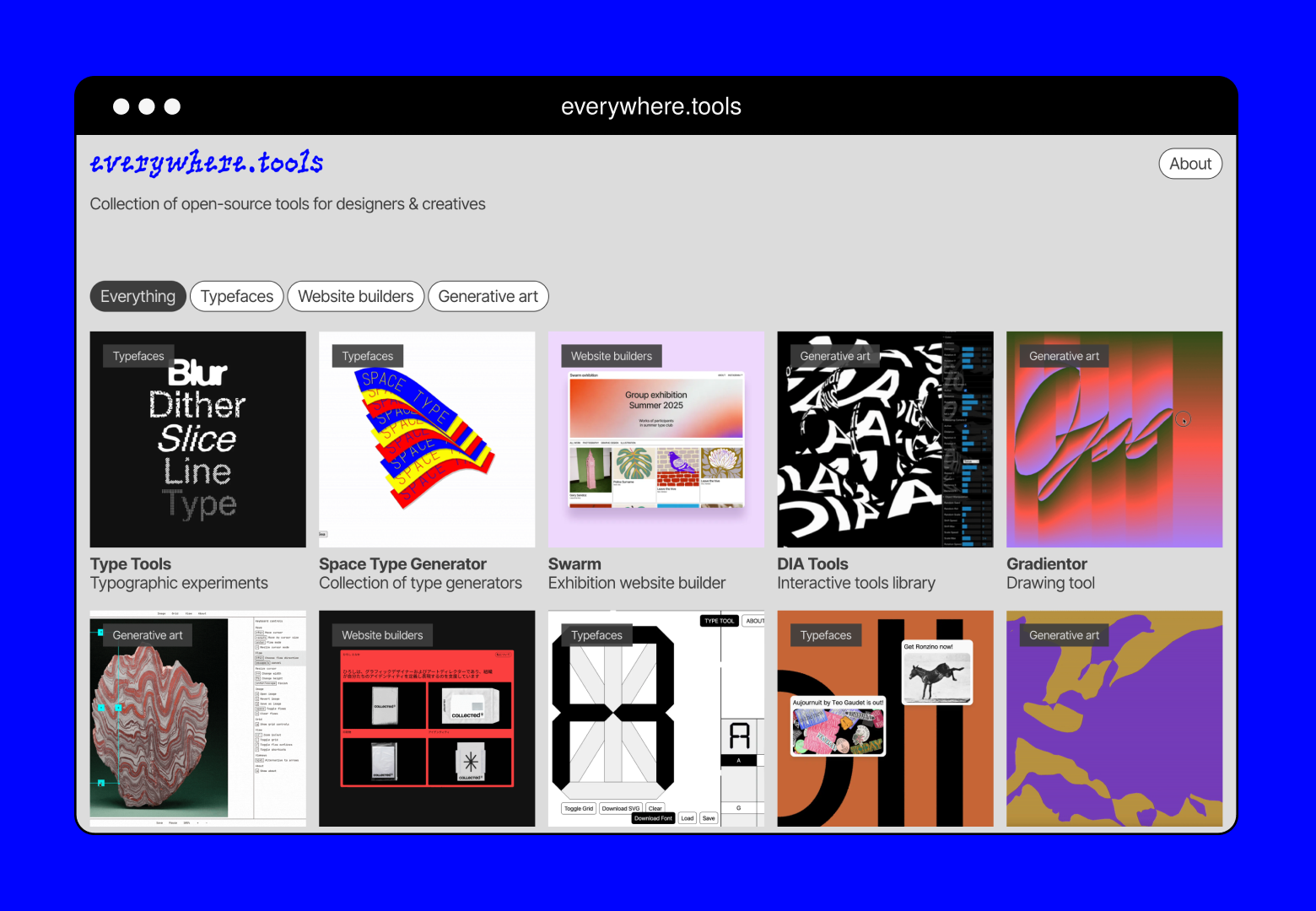
While working on Collected and Swarm, I started thinking not just about the tools themselves but their ecosystem, how people discover, share, and get inspired to create their own. I noticed that finding open-source projects for designers was harder than it should be. I wanted to gather them in one place so they’d be easier to locate, use, and spread.
That’s how Everywhere.tools was born, it's a living collection of open-source design resources, from web apps to generative services and open font libraries. My goal wasn’t simply to list useful links but to champion a sharing culture: to show that designer-centric open-source projects exist, are convenient to use, and deserve to be shared. I hope the platform will help these initiatives grow and inspire others to start their own.
All these projects are publicly available. If you’re building a portfolio, setting up an exhibition, or just hunting for new open-source design tools, take a look. I’d love to hear your feedback, questions, and suggestions in the comments.
And maybe this text will motivate you not only to use something but to launch your own project. Even a small CodePen script, a template, or a visual tool could be useful to someone else, making it well worth sharing.
Originally published on Habr in Russian on June 14, 2025.